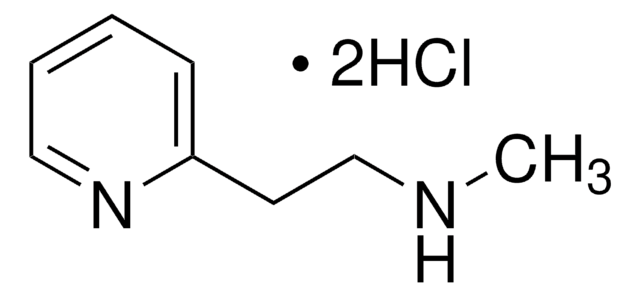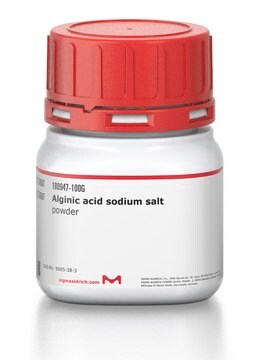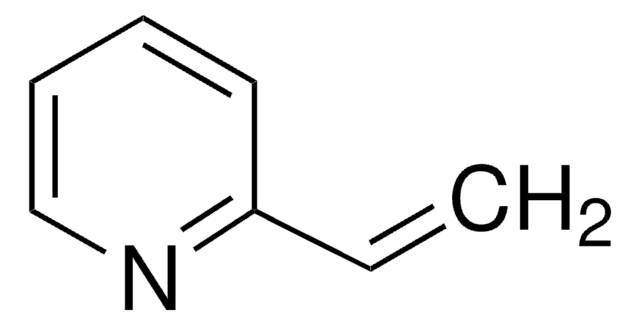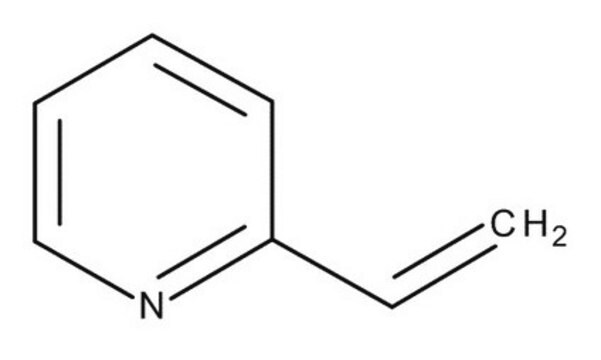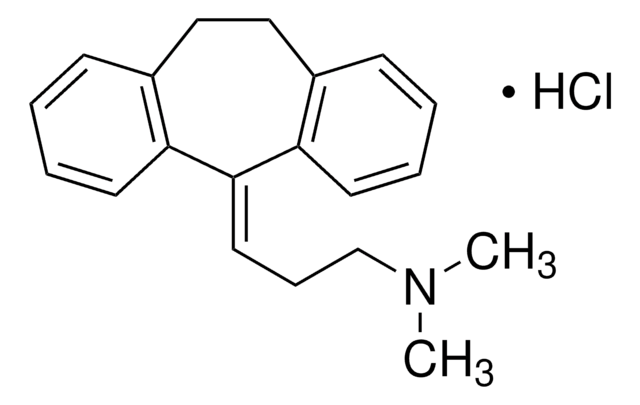B4638
Betahistine dihydrochloride
≥98%
Synonym(s):
Methyl[2-(2-pyridyl)ethyl]amine dihydrochloride
Sign Into View Organizational & Contract Pricing
All Photos(2)
About This Item
Empirical Formula (Hill Notation):
C8H12N2 · 2HCl
CAS Number:
Molecular Weight:
209.12
EC Number:
MDL number:
UNSPSC Code:
12352100
PubChem Substance ID:
NACRES:
NA.22
Recommended Products
Assay
≥98%
form
powder
SMILES string
Cl.CNCCc1ccccn1
InChI
1S/C8H12N2.2ClH/c1-9-7-5-8-4-2-3-6-10-8;;/h2-4,6,9H,5,7H2,1H3;2*1H
InChI key
XVDFMHARQUBJRE-UHFFFAOYSA-N
Gene Information
human ... HRH1(3269) , HRH3(11255)
Looking for similar products? Visit Product Comparison Guide
Storage Class Code
11 - Combustible Solids
WGK
WGK 3
Flash Point(F)
Not applicable
Flash Point(C)
Not applicable
Personal Protective Equipment
dust mask type N95 (US), Eyeshields, Gloves
Choose from one of the most recent versions:
Already Own This Product?
Find documentation for the products that you have recently purchased in the Document Library.
Customers Also Viewed
Enis Alpin Guneri et al.
Otolaryngology--head and neck surgery : official journal of American Academy of Otolaryngology-Head and Neck Surgery, 146(1), 104-108 (2011-08-20)
The purpose of this study is to evaluate the effects of betahistine in addition to Epley maneuver on the quality of life of patients with posterior semicircular canal benign paroxysmal positional vertigo (BPPV) of the canalithiasis type. Double-blind, randomized, controlled
Burkhard Franz et al.
Acta oto-laryngologica, 131(11), 1155-1159 (2011-09-13)
Betahistine dihydrochloride, a drug used widely in the systemic treatment of balance disorders such as Ménière's disease, was found to improve eustachian tube function when applied topically in the nasopharynx of rats. The study tested the effect of betahistine, a
T Y Kew et al.
The Journal of laryngology and otology, 126(1), 66-71 (2011-08-27)
We report an extremely rare case of duplication of the internal auditory canal associated with dysfunction of both the facial and vestibulocochlear nerves. We also review the literature regarding the integrity of the facial and vestibulocochlear nerves in such cases.
Maurício Malavasi Ganança et al.
Brazilian journal of otorhinolaryngology, 77(4), 499-503 (2011-08-24)
Betahistine is a medicine used to treat vestibular disorders that has also been used to treat tinnitus. To assess the effects of betahistine on tinnitus in patients with vestibular disorders. Retrospective data were collected from patient records for individuals presenting
Fritz Ihler et al.
PloS one, 7(6), e39086-e39086 (2012-06-30)
Betahistine is a histamine H(1)-receptor agonist and H(3)-receptor antagonist that is administered to treat Menière's disease. Despite widespread use, its pharmacological mode of action has not been entirely elucidated. This study investigated the effect of betahistine on guinea pigs at
Our team of scientists has experience in all areas of research including Life Science, Material Science, Chemical Synthesis, Chromatography, Analytical and many others.
Contact Technical Service